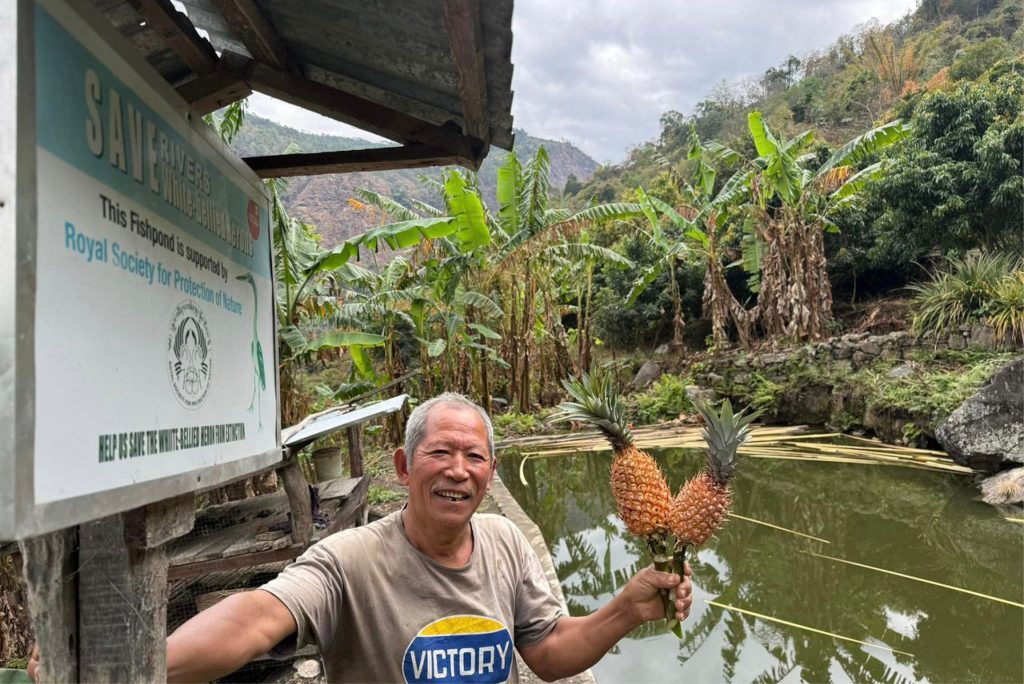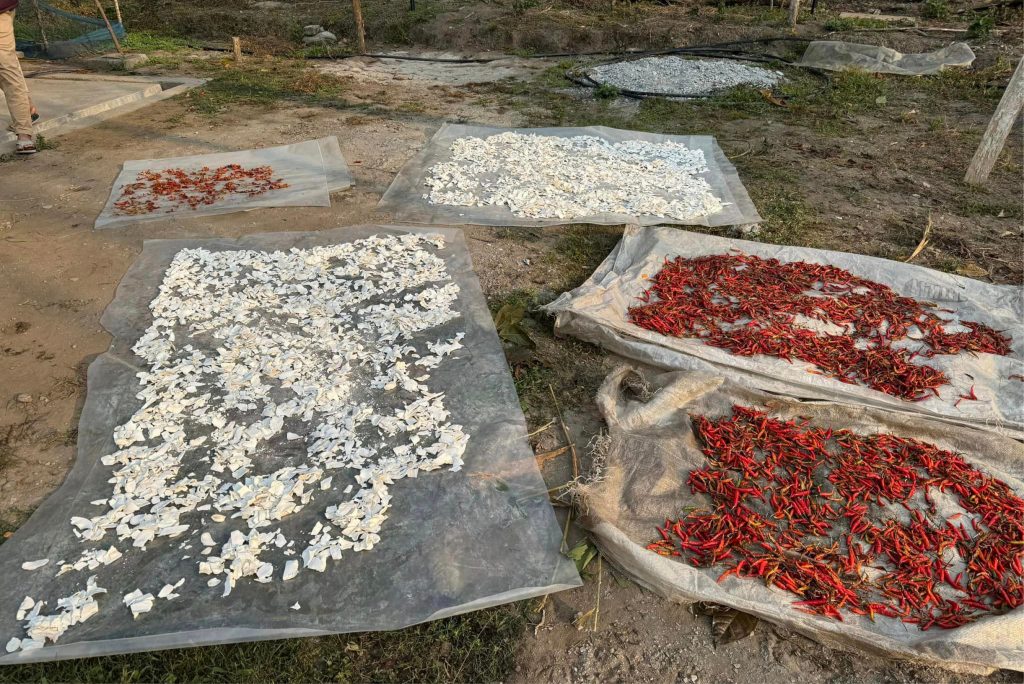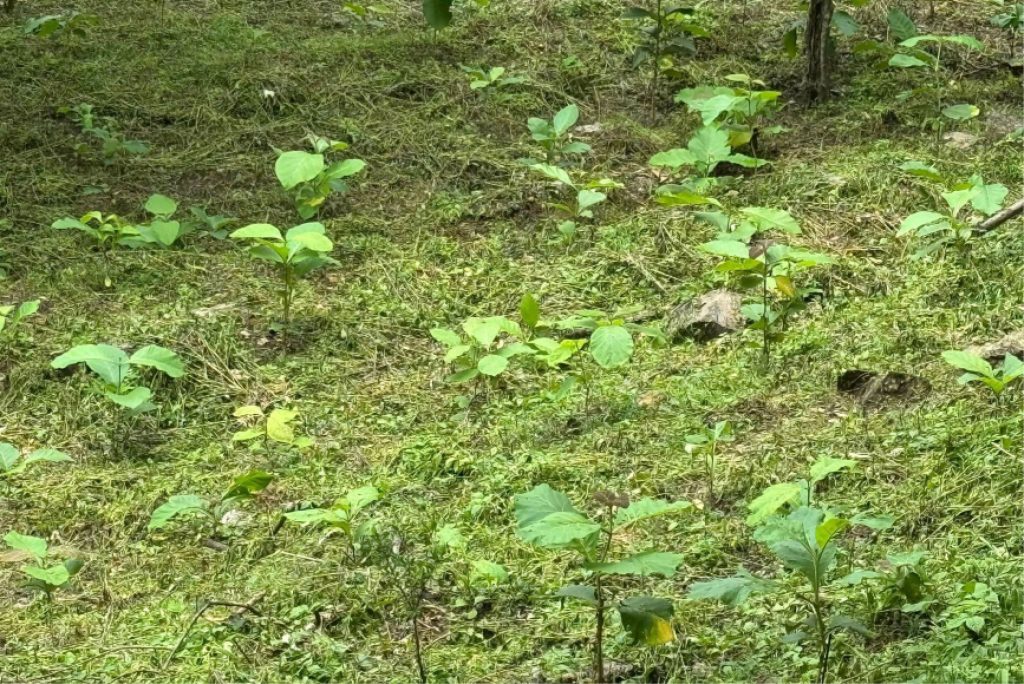With the growing environmental concerns and economic challenges, there is an increasing recognition of the importance of sustainable practices that balance human needs with ecological preservation. One such practice is the investment in plantation creation which offers a multitude of socio-economic and environmental benefits. Many communities residing along the White-bellied Heron landscape feel it is not too late to invest in plantations. The increase in the frequency of landslides, floods and crop failure in the community, and economic opportunities observed from the forestry has driven many of the communities to go for the plantation and it is gaining more popularity in the area. It has become a common sight now to see every household is covered with wide varieties of fruit trees, crops in between and at the periphery of their field are fenced by the high commercial value trees. This integration known as agroforestry or intercropping, represents a sustainable and holistic approach that the communities are gearing for. This practice combines the benefits of tree-based and crop-based farming systems, creating a synergistic relationship that enhances productivity, environmental health, and socio-economic resilience.
Not very long ago, before the initiation of the conservation and livelihood projects by RSPN along the White-bellied Heron landscape, the communities had limited livelihood options. RSPN made a significant contribution in complementing the government’s effort to support these communities through various provisions; land management, high breed livestock provision, fishery farming, high-quality seed and seedling supply, fruit tree supply, high-value timber species supply, nursery raising, rural water scheme, development of ecotourism products such as homestay, nature trail and camps, and many more in terms of building their capacity. Today, there is significant progress observed in the way communities are engaged in diverse alternative livelihood options and it has also become a boom of roadside stalls selling the local products.
RSPN in a recent year has provided more focus for the communities to guide them in investing long-term economic opportunities that has also ecological benefits. Through the restoration project, RSPN in collaboration with the Department of Forest and Park Services is supporting community forest groups and private individuals in enhancing their forestry management that would generate more income in the long run. High-value timber species, fruit trees and non-wood forest products are more encouraged for communities. In the last three years, more than 20 community forest groups and about 25 individuals under six districts of Bhutan were supported for forestry enrichment. This activity down the years will significantly benefit the community with increased access to natural resources, and income generation, and have ecological benefits such as sustaining biodiversity in the areas, land stabilization, Human-wildlife conflict management and regulating climate change. Similarly, the livelihood project under RSPN has a direct focus on the communities in exploring various alternative and sustainable livelihood options. Community-based ecotourism, climate-smart agriculture programs and sustainable resource management are current focus in the communities.



Copyright © 2026 RSPN All Rights Reserved